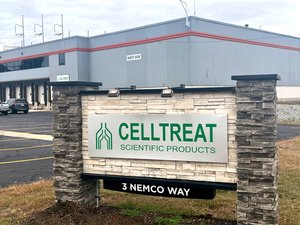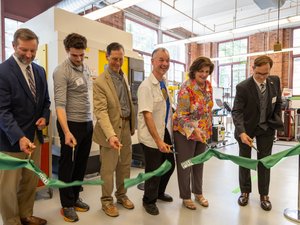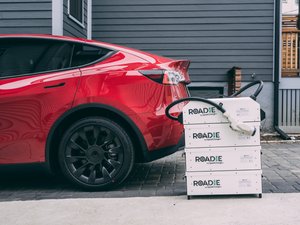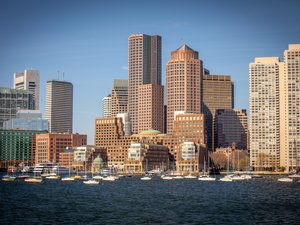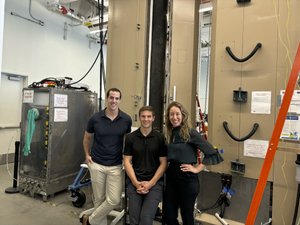
Anthony Amicangioli, founder and CEO of Hyannis Port Research (HPR), was born into a crucible.
Amicangioli's first startup experience happened just about two decades ago, at the turn of the century. He was the founder of Zetari, a startup that specialized in building equipment cloud computing before cloud computing was the staple of the software world it is today.
Officially started in 1999, Zetari managed to raise $3.4 million in financing. The team had a successful working product. They demonstrated it at Interop in Las Vegas to great fanfare.
Then, the dot-com bubble burst.
"The beginning of 2001, I'll never forget, U.S. v. Microsoft was announced," Amicangioli recalled. "The stock market just went down and down and down. That was the dot-com blowout."
It wasn't quite the end of the rope for Zetari. The team had begun to raise a second funding round and intended to finish out that work, increasing the runway for their small startup. Amicangioli and his team had the support of an East Coast venture capital firm and thought they were ready to go. The universe had other plans.
"Within seven days was 9/11," Amicangioli said. "And that was the end. That was the end of that company. Fantastic team, great product, up-and-coming market—I got wiped out."
Nineteen years later, that experience still colors how Amicangioli runs his business. At HPR, he manages a team that manufactures trading and risk management technology for financial markets. HPR's software is considered critical stock market infrastructure, so his employees are active in spite of the coronavirus' economic disruption.
But Amicangioli is cautious regardless. HPR keeps one year of cash on hand at all times. The end times could hit, revenue could dry up entirely, and HPR would keep going for 12 months without disruption.
By mid-March, the coronavirus had certainly disrupted business in Boston. Scores of office-based companies had sent their employees to work from home at that point. Cases in Massachusetts were at just 164 on March 15—a fraction of what was to unfold in the weeks after. Layoffs in the tech industry would come later that week, starting with Lola.com as corporate travel dropped to zero.
Amicangioli remembers fielding phone calls from worried employees: folks who were worried about what working remotely would entail, about the company's runway, about the virus' potential to disrupt the stock markets.
"There were employees who had an order of magnitude greater degree of concern than I had," Amicangioli said. "We had literally more than one year of capital."
On Sunday, March 15, Amicangioli told employees in a company-wide email that HPR would not be laying off any employees. The following Monday, during an all-hands phone call, he repeated that, allaying people's fears. That has meant a pivot for some teams—the talent acquisition team, for example, has spent much more time than normal on marketing and operations without any recruitment taking place—but everyone will still have their jobs.
Elsewhere in Boston, another company was able to make that same commitment: Preservica, a startup focused on digital preservation of documents, photos and videos and other material.
"We looked at the current outlook," said CEO Mike Quinn. "We took a knife to the business growth plans for this year, but we were able to say, 'You know what, we're actually running a pretty good business here. We maybe need to scale back our growth projections, but it's more important that we tell our staff they're staying on.'"
Quinn told his 55 employees, 15 in Boston and 40 in the U.K., that their jobs would be secure.
It's possible that will change; nothing is ever completely secure in the startup world, and Quinn and his team will evaluate where things are at in about six months. But Quinn has reason for confidence. The work of digital preservation is particularly relevant right now, he noted, with governments, financial institutions, universities and cultural institutions like museums and libraries documenting information about the coronavirus as it unfolds.
Preservica's business model is also particularly resilient. Clients pay for a subscription, but the retention rate is extremely high.
"We have very predictable annual recurring revenue," Quinn said. "People don't go into digital preservation lightly. You don't do digital preservation this year and then not next year. Our customer turnover rate is incredibly low."
HPR and Preservica's commitments are a rarity these days. More than two dozen startups and tech firms in Boston have been forced to lay off or furlough employees as a direct result of the coronavirus.
Amicangioli and Quinn are aware that they are privileged to be able to let their own teams know that they are secure for the moment—and that it's something employees need to hear.
"The way I positioned it was, 'In order to give everyone certainty at a time of uncertainty, we are not planning any layoffs in the business,'" Quinn said. "'You can be certain of your continued role in Preservica.'"
